Folic acid, also known as vitamin B9, plays a vital role in mental health, particularly in relation to anxiety and depression. It aids in the production of neurotransmitters such as serotonin and dopamine, which are essential for mood regulation. Low levels of folate have been linked to an increased risk of mood disorders, including major depressive disorder and anxiety symptoms. Research suggests that individuals with low folate concentrations may experience more severe depressive episodes and higher levels of anxiety.
Incorporating folic acid supplements into a treatment plan for anxiety and depression has shown promise, especially for those who may have a folate deficiency or an MTHFR polymorphism, which can impair the body’s ability to process folate. Folate supplementation may enhance the effectiveness of antidepressant treatments like SSRIs (selective serotonin reuptake inhibitors) by boosting the production of mood-regulating neurotransmitters. While more clinical trials are needed, the relationship between folic acid and mental health is gaining recognition in the field of psychiatry.
What is Folic Acid Exactly?
Folic acid is a synthetic form of folate, a B-vitamin (B9) that is essential for numerous bodily functions. Naturally found in foods such as leafy greens, beans, and citrus fruits, folate is vital for DNA synthesis, cell growth, and the production of red blood cells. Folic acid, the man-made version, is commonly found in dietary supplements and fortified foods, helping individuals meet their daily folate requirements.
One of the key roles of folic acid is to support the nervous system by aiding in the synthesis of neurotransmitters like serotonin, dopamine, and norepinephrine, which are crucial for regulating mood. This has made it a focus of interest in mental health, particularly in the treatment of mood disorders like anxiety and depression. Additionally, folic acid is involved in reducing homocysteine levels, an amino acid that, when elevated, is associated with a higher risk of mental health disorders and cardiovascular issues.
How Does Folate Contribute to Health?
Folate, the natural form of vitamin B9, is critical for maintaining overall health due to its role in numerous physiological processes. One of its primary functions is supporting DNA synthesis and cell division, which makes it essential for tissue growth and repair. Folate also plays a significant role in the production of red blood cells, helping to prevent anemia, a condition that can lead to fatigue, weakness, and impaired cognitive function. Beyond physical health, folate contributes to mental well-being by supporting the nervous system and promoting the production of key neurotransmitters involved in mood regulation.
In the context of mental health, folate is especially important for brain function. It aids in the synthesis of serotonin, dopamine, and other neurotransmitters that help regulate mood, which is why folate deficiency has been associated with an increased risk of mood disorders such as depression and anxiety. Studies suggest that individuals with low levels of folate may experience more severe depressive symptoms, and supplementing with folate or methylfolate (the active form) can potentially enhance the effectiveness of antidepressants.
Symptoms of Folate Deficiency
Folate deficiency can have significant impacts on both physical and mental health. When the body lacks sufficient folate, it may struggle to perform critical functions, such as producing red blood cells and synthesizing DNA. This deficiency can lead to various symptoms, many of which overlap with conditions like anemia and mood disorders. The mental health effects of folate deficiency are especially concerning, as low levels of folate have been linked to increased risks of depression, anxiety, and cognitive impairment.
The following are symptoms of folate deficiency:
- Fatigue and weakness
- Shortness of breath
- Irritability and mood changes
- Cognitive impairment or difficulty concentrating
- Depression and anxiety symptoms
- Sore tongue or mouth
- Heart palpitations
- Pale skin
- Gastrointestinal problems such as diarrhea
- Reduced appetite or unintended weight loss
In addition to physical symptoms, folate deficiency can also exacerbate mental health issues. Those with low folate levels may experience more severe depressive episodes or increased anxiety, which is why folate supplementation is sometimes recommended as part of treatment for mental health conditions. Addressing a folate deficiency early can improve overall well-being and help prevent more serious health complications down the line.
Folate and Vitamin B12
Folate and vitamin B12 are closely linked in supporting overall health, particularly when it comes to mental well-being. Both of these vitamins, along with vitamin B6, play a critical role in neurotransmitter synthesis, which helps regulate mood and cognitive function. A deficiency in either folate or vitamin B12 can lead to mental health challenges, including depression, anxiety, and cognitive impairment. Maintaining adequate levels of both nutrients is important, as they often work together in the same metabolic pathways, especially in the synthesis of DNA and red blood cells. Low B12 levels, for instance, can lead to symptoms that mimic folate deficiency, such as fatigue and mood disturbances.
Taking vitamin supplements that include folate, vitamin B12, vitamin B6, magnesium, and even vitamin D can help address potential deficiencies that contribute to mental health issues. A vitamin B12 deficiency, if left untreated, can lead to more serious conditions, including neurological impairment and anemia. Addressing these deficiencies is not only vital for individual well-being but also for public health, as deficiencies in these key vitamins are common, especially in populations with limited access to nutrient-rich foods. While vitamin supplementation generally has few side effects, it’s essential to consult with a healthcare professional to ensure you’re getting the right balance for your body’s needs.
Folate and Anxiety
Folate plays a crucial role in brain function and mental health, and its relationship with anxiety is an area of growing research. Folate aids in the production of neurotransmitters, such as serotonin and dopamine, which are essential for regulating mood and emotional responses. Low levels of folate may disrupt this process, leading to imbalances in these neurotransmitters, potentially contributing to anxiety disorders. People with a folate deficiency are at a higher risk of developing anxiety symptoms, as well as other mood disorders.
In addition, some individuals may have genetic variations, such as the MTHFR polymorphism, which affect how their bodies process folate. These individuals may require a form of folate called methylfolate to properly support neurotransmitter synthesis. Studies have shown that folate supplementation, particularly in individuals with low folate levels or genetic impairments, can help reduce anxiety symptoms when used alongside traditional treatments like therapy or medication. Thus, maintaining adequate folate levels is key to supporting mental well-being and managing anxiety effectively.
Folate and Depression
Folate has a significant connection to depression, largely due to its role in producing neurotransmitters that regulate mood, such as serotonin, dopamine, and norepinephrine. A deficiency in folate has been linked to an increased risk of developing depression and may also lead to more severe depressive symptoms. People with low levels of folate in their blood are often less responsive to antidepressant treatments, such as SSRIs, which highlights the importance of maintaining adequate folate levels for both the prevention and management of depression.
Folate supplementation, particularly in the form of methylfolate, can enhance the effectiveness of antidepressant medications by supporting the synthesis of neurotransmitters needed for mood regulation. Some clinical trials have shown that folic acid or methylfolate supplementation can reduce depressive symptoms when combined with standard treatments. This is especially relevant for individuals with genetic variants, such as the MTHFR polymorphism, which can impair their ability to convert folic acid into its active form. Addressing folate deficiency is an important aspect of holistic depression treatment.
Folic Acid in Psychiatry
In psychiatry, folic acid is increasingly recognized as a valuable supplement to support mental health treatments, particularly for mood disorders such as anxiety and depression. Folic acid, the synthetic form of folate, contributes to the synthesis of neurotransmitters like serotonin, dopamine, and norepinephrine, which are essential for maintaining emotional balance. For individuals suffering from mental health conditions, low levels of folate can exacerbate symptoms, making it more difficult to manage anxiety, depression, and other mood disorders. This has led to a growing interest in folic acid as a complementary treatment in psychiatry.
Some studies have shown that folic acid supplementation can enhance the effectiveness of antidepressants, especially in cases where patients exhibit folate deficiency or have genetic variations like the MTHFR polymorphism, which affects the body’s ability to process folate. In particular, the use of methylfolate, the active form of folic acid, has been effective in improving outcomes for patients who are resistant to standard treatments. By addressing folate deficiencies, psychiatrists can offer a more comprehensive approach to mental health care, enhancing both the physical and psychological well-being of their patients.
Recover from Anxiety with Luxury Psychiatry
At Luxury Psychiatry Clinic, we understand that anxiety can be a debilitating condition, impacting every aspect of your life. Our comprehensive approach to anxiety treatment includes a blend of traditional and advanced therapies, tailored to your unique needs. From psychotherapy to medication management, we offer a range of evidence-based treatments designed to help you manage anxiety effectively. Our team of experienced psychiatrists and therapists also incorporates nutritional support, such as folic acid supplementation, which has been shown to aid in the reduction of anxiety symptoms by supporting neurotransmitter balance.
In addition to conventional therapies, Luxury Psychiatry Clinic provides cutting-edge treatments like transcranial magnetic stimulation (TMS) and ketamine therapy for individuals who may not respond to standard interventions. With personalized care plans and a focus on holistic well-being, our goal is to help you recover from anxiety and regain control of your mental health in a supportive and luxurious environment.




















